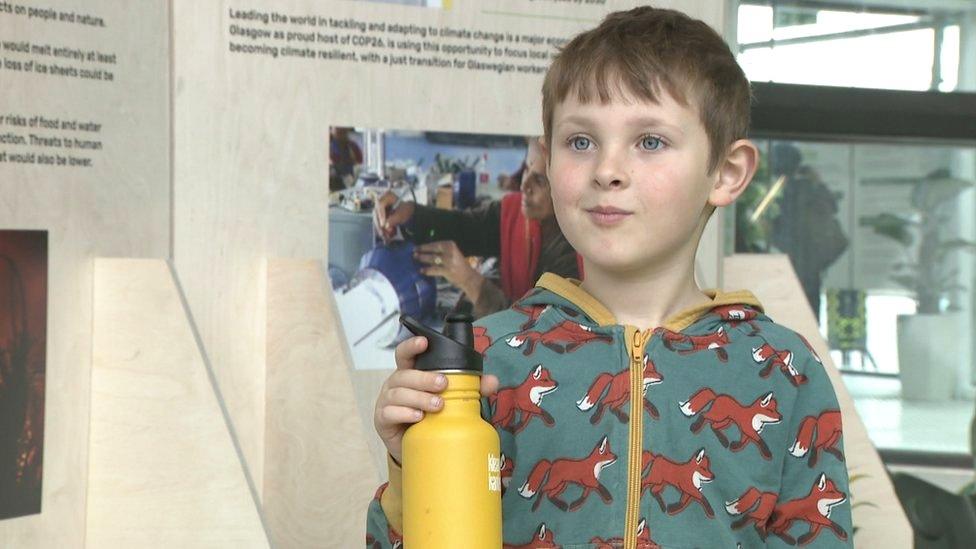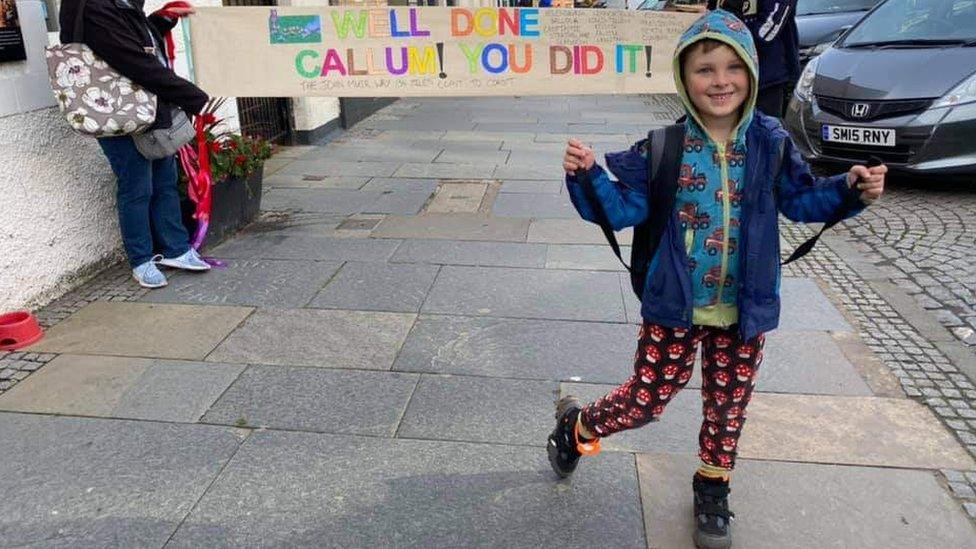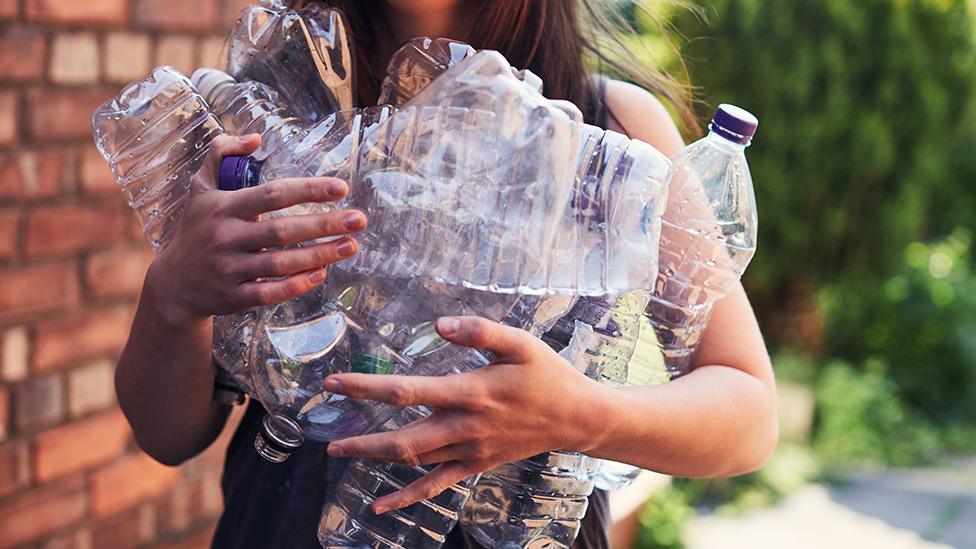Boy, 7, takes school reusable bottle campaign to Holyrood
- Published

Callum visited the COP26 Green Zone at Glasgow Science Centre after getting a Learning for Sustainability youth award
A seven-year-old boy who is campaigning to replace single-use water bottles in school lunchboxes has been invited to speak to MSPs.
Callum Isted wants all primary children in Scotland to have a reusable bottle and access to taps where they can refill them at school.
He completed the John Muir Way, external in stages to raise £1,400 to buy steel bottles for all pupils at his school.
They were previously given single use bottles with a packed lunch on Fridays.
On Mondays to Thursdays the children at Dedridge Primary School in Livingston, West Lothian, had water or milk in washable cups.
But on Fridays, when they have a half day, children were sent home with a packed lunch and a bottle of water.
"What used to happen is all the plastic bottles got chucked in the bin and they go out to sea," Callum said. "And that is 180 bottles per day. Now we're just to zero a day."
'Determined and passionate'
Earlier this year Callum walked the 134-mile John Muir Way,, external from Helensburgh to Dunbar, to raise enough money to buy Klean Kanteen steel bottles for the 185 pupils in his school.
He was one of the winners of Education Scotland's Learning for Sustainability Youth Awards last month.
After the online award ceremony Callum and his parents were given tickets to the COP26 Green Zone, external at Glasgow Science Centre, where public events are being held during the United Nations climate change conference.
And earlier this week his petition to the Scottish Parliament, external, which received 146 signatures, was considered by MSPs.
He was congratulated by Jackson Carlaw at the Scottish Parliament's petition committee for being the county's youngest known petitioner.
Callum would be invited to Holyrood's Citizen Participation committee to give evidence in support of his petition to allow the committee "to explore the issues raised in the petition in some detail", Mr Carlow said.
Sue Webber MSP told the committee she was happy to support him. She said: "He's certainly a determined and passionate young man already."

Callum Isted completed the John Muir Way to raise money for steel water bottles for children at his school
His mother, Sarah Isted, told BBC Scotland she was very proud of Callum.
She said he weighed a bottle he'd brought home from school and calculated the total weight of bottles his school threw out each year was about that of a giant panda at Edinburgh Zoo.
"That figure really upset him and really galvanised him into action," Mrs Isted said.
At home he questions where food and clothes come from and questions the family's use of plastics.
"He really holds us to account. It can only be a positive thing because things do need to change."
Access to taps
There are more 2,005 mainstream state primary schools in Scotland, and 394,000 pupils.
In some schools children are given water in single use plastic bottles with lunch. The responsibility for providing school meals lies with the local authority, not the Scottish government.
While many schools encourage children to bring a reusable water bottle each day, some have restricted access to taps for refilling bottles.
When schools reopened in August 2020 after the coronavirus lockdown, staff in some areas were advised not to allow children to refill their bottles because of the risk of transferring saliva if bottles touched the tap.
In a committee briefing for Callum's petition, external, government researchers said tap water caused 180 times fewer greenhouse emission that than a standard single use plastic bottle of water.
A "typical" plastic reusable container needed to be used 15 times to have a lower carbon impact than a single use one, and could be expected to have positive environmental impact and cost less than bottled water, it stated.
The Scottish government aims to have moved away from a "throw-away" economy to one where resources are reused wisely by 2045.
A deposit return scheme has been delayed by the coronavirus pandemic.
Michael Matheson MSP told the Net Zero, Energy and Transport Committee in September that the government was taking measures to support schools reduce waste.
Related topics
- Published5 November 2021

- Published5 November 2021

- Published17 November 2021
